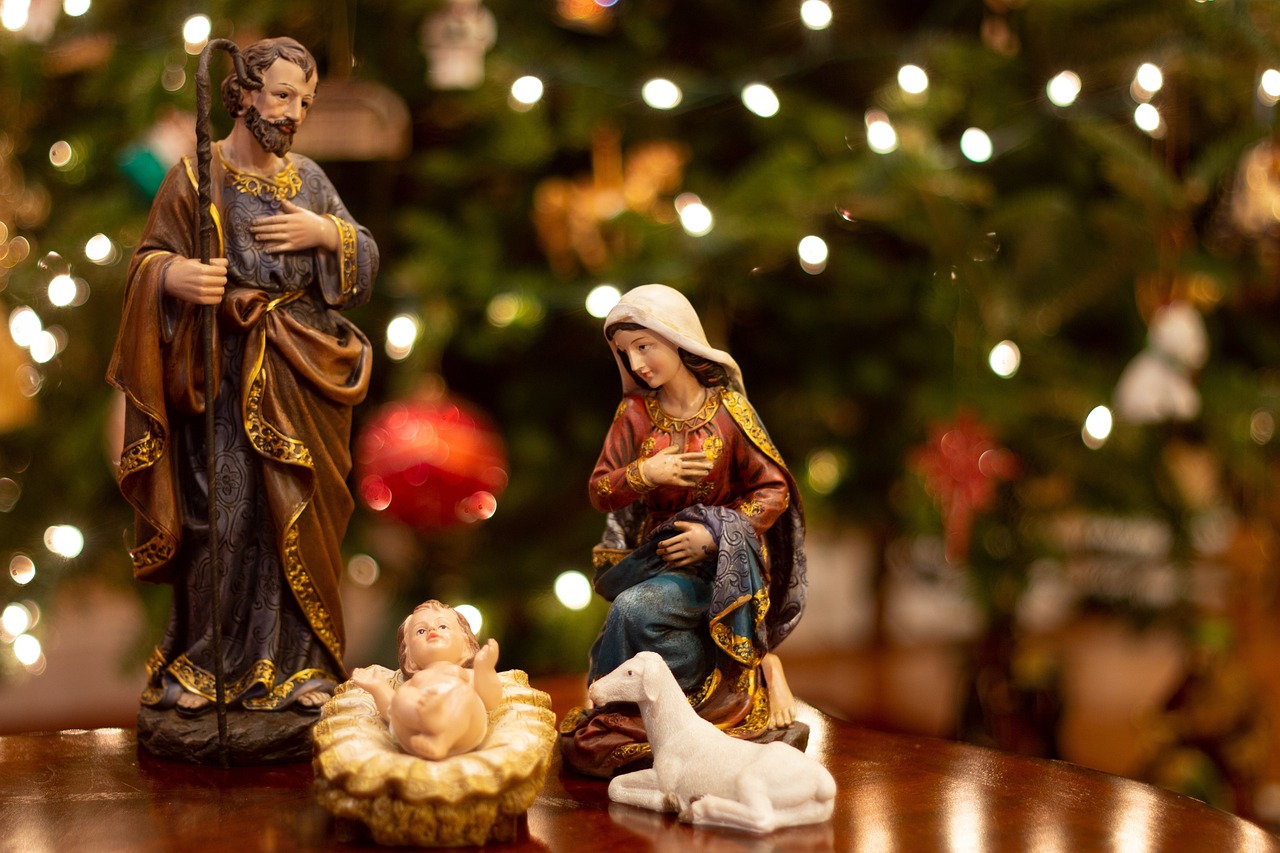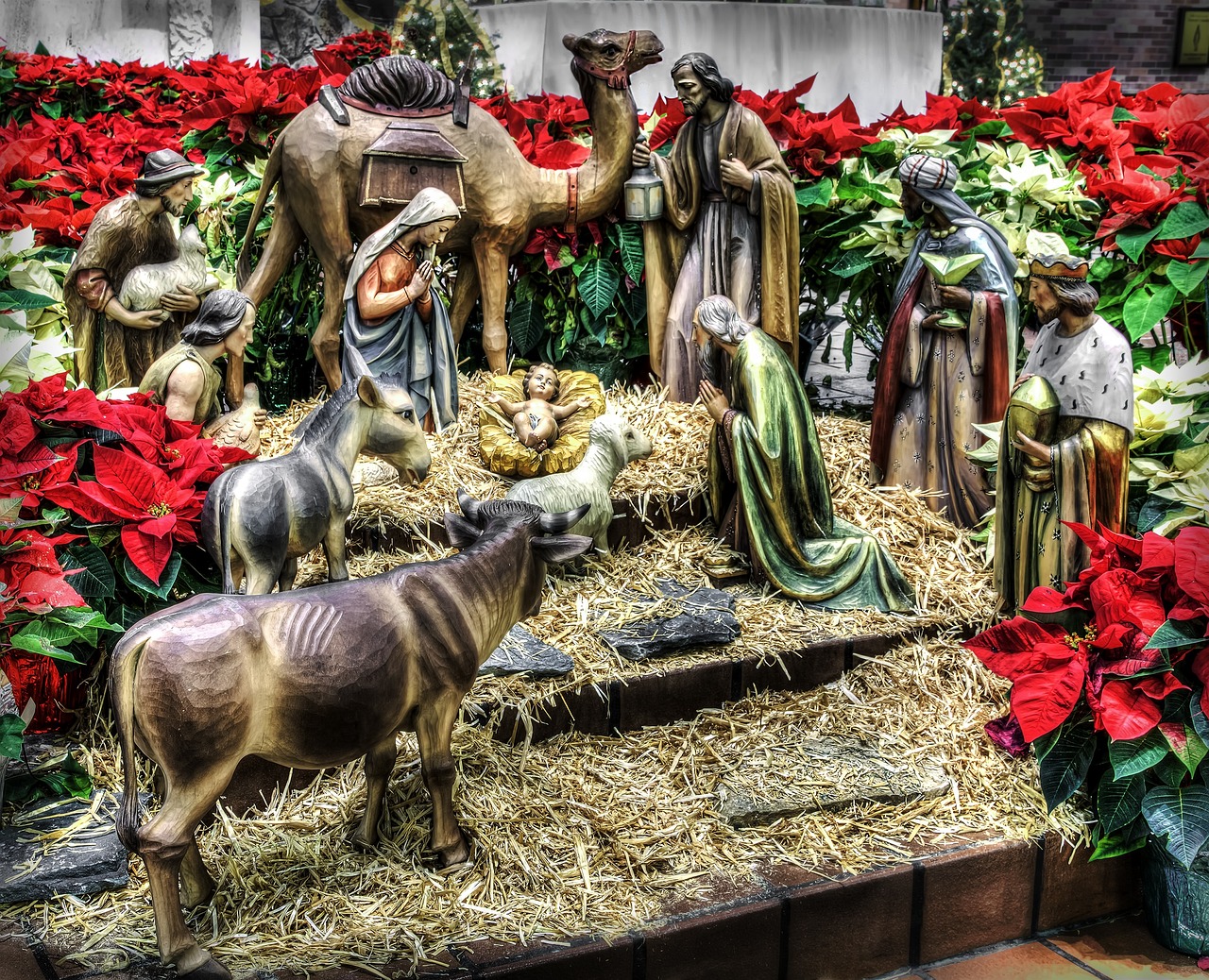Very soon, the entire Christian world will celebrate the birth of Christ. Usually in Christian families, the anticipation of the holidays is already in the air from the beginning of December. I don’t think anyone looks forward to Christmas more than our children. Many of us have had a Christmas tree at home since the first days of December.
Children always look forward to Christmas in a special way. They believe that this time they will experience new and unforgettable sensations. They believe that this Christmas is somehow new and special for them. They believe in a miracle and want to experience it. And they look forward to it.
On February 11, 1986, after 9 years of imprisonment, Jewish dissident writer Anatoli (Natan) Sharansky was released. This release was made possible by a special agreement between the USSR and the US, and he was exchanged for Yevgeny Zemlyakov, a Soviet intelligence officer arrested in Germany. The exchange took place on the Glienicke Bridge, on the border between West Berlin and the GDR.
Nathan was arrested in 1977 for “anti-Soviet activities”. It all started when Nathan applied to leave Israel in 1973. He was refused and became an active participant in the refused-Jewish émigré movement and an active member of the Moscow Helsinki Human Rights Group. By the way, fluent in the Ukrainian language, he often translated the appeals of Ukrainian dissidents who disagreed with the discrimination of Ukrainian culture in the USSR. Sharansky was accused of treason and sentenced to 13 years in a colony with the strictest regime. But it was thanks to the publications of his Moscow Helsinki Group that the whole world learned about the colossal human rights violations in the USSR (despite the fact that the Kremlin government signed the Helsinki Agreements).
While in prison, he was constantly hit by the prison authorities (by order of the Soviet authorities). Sharansky spent almost half of his sentence in solitary confinement and over 400 days in solitary confinement on reduced food rations, low temperatures and without the necessary clothing.
His wife Avital (Natalia Stieglitz) constantly sought help from the presidents of other countries, especially US President Ronald Reagan, to help free her husband from prison. But his wishes could not be fulfilled for a long time. Sharansky just had to wait. And Nathan waited. Waited 9 long years!
Despite the torture and bullying, Nathan never stopped waiting for the day when he would break free from the shackles of Soviet (Russian) terror and be free again, see his beloved wife Avital and leave for the desired Israel. He had to wait for his dream for 9 years. But he was waiting for this great day. He saw his wife, was able to hug her after a long separation and finally emigrated to Israel. He was awarded the title of “Hero of Israel” and received two of America’s highest awards – the US Congressional Gold Medal (1986) and the Presidential Medal of Freedom (2006).
The Western world admired his patience and ability to confidently wait for his release. This patient expectation of a miracle gave him the strength to fight all the hardships and miseries he experienced in the maximum regime colony…
Two thousand years ago, a gray-headed old man in Jerusalem was also very much looking forward to Christmas. The Lord taught him that he would not die until he saw Christmas. We all know this old man very well, although he often goes unnoticed during the Christmas holidays. The story of this old man has a special place in the story of Christ’s birth.
We all want the Lord to visit our lives in a special way and bring us His blessings. We all want the Lord to fill our lives, our families, and our homes with His presence.
In the second chapter of his Gospel, the evangelist Luke talks about how this godly elder Simeon looked forward to Christmas. As we reflect on this, we may ask ourselves: How should we desire God’s visitation? How should we prepare ourselves for God’s visitation? What should be the condition of our heart?
1. Wait in purity and righteousness of heart
First, we must wait to meet Christ in the purity and righteousness of our hearts.
“He was a righteous and godly man” (Luke 2:25).
Luke does not specify Simeon’s age and position in society (according to the old Christian tradition, Simeon was 112 years old when he met the infant Christ (Pseudo-Matthew, 15:2), but gives a characteristic feature of Simeon. Simeon was “righteous” (δίκαιος) and “pious ” (εὐλαβὴς) spouse. The word δίκαιος can be translated not only as “righteous,” but also as “conscientious,” “godly,” and “honest.” This word was used to describe those who were in right relationship with God, who lived in harmony with God’s will.
This characteristic belongs to so many characters in the Christmas story. Looking at how the gospels describe the birth of Jesus Christ, we see that Zechariah and Elizabeth are called “righteous”, to whom the angel announced the birth of John the Baptist – “Both were righteous before God, walking blamelessly in all the commandments and ordinances of the Lord” (Luke 1:6) . Matthew calls Joseph, Mary’s husband and stepfather of Jesus Christ, with the same word δίκαιος – “righteous” (Matthew 1:19). Joseph is called “righteous” because his heart was “pure” before God.
All these characters saw the birth of the Messiah because their hearts were “right” before God. If your eye is not clear, you will not see the visitation of the Lord. If your heart is not pure, you will not experience the visitation of the Lord. If your hands are not clean, you will not touch the presence of God.
Many of the characters in the Christmas story did not understand or see Christmas because their actions were evil and their hearts were not pure before God. Neither the religious leaders, the Sanhedrin, the chief priests nor the Pharisees knew the time of the coming of the Messiah. A personal encounter with Christ requires an “honest” and “pure” heart.
2. Wait with great desire
But Simeon did not expect to meet the Lord with a “pure” heart. Luke writes that Simeon “waited for the consolation of Israel” (Luke 2:25). “To wait” means “to hope, to feed hope, to wait eagerly, to wait with great desire, to wait intensely, to wait passionately.” The word προσδέχομαι means “to receive, hold and wait”.
Simeon accepted God’s promise of future comfort, kept this special revelation of God in his memory, and waited with great desire for the Messiah to finally come and bring comfort to the long-suffering nation of Israel. His expectation of comfort for Israel was inspired by the prophet Isaiah, who prophesied the coming of the Messiah and the coming of the messianic age (Isaiah 40:1, 49:13, 51:3, 66:13).
Simeon awaited this visitation of God with great desire, with enthusiasm, with eagerness, and with admiration.
It is not enough to just wait for a visit from God and to meet Christ. The Lord wants to see our zeal for Him. He wants us to wait for Him with great desire. They waited, straining their will. They waited actively, waited intently, directing all their desires and aspirations to the Lord. They waited anxiously for God’s revelation, just like Simeon. The Lord reveals Himself to those who wait, and to those who wait, He comes.
How much do we really seek comfort from the Lord today? How jealous are we to meet God? Do we seek this special contact with God with all our heart (לֵבָב), with all our soul (נֶ֫פֶשׁ) and with all our strength (מְאֹד)?
3. Wait eagerly
Simeon was also eagerly waiting to meet the Messiah. It is written that he came that day under the special inspiration of the Holy Spirit: “He came by the Spirit into the sanctuary” (Luke 2:27). The new modern version says that “the Holy Spirit brought him into the temple” (Luke 2:27). The Greek text of the New Testament says that Simeon came to the temple “in the Spirit” (ἐν τῷ πνεύματι). Simeon had a special relationship with the Holy Spirit. The Holy Spirit was at work in his life and he obeyed the leading of the Holy Spirit. He received revelations from the Holy Spirit and was under the constant guidance of the Holy Spirit. He went to the temple knowing that the Lord would do something special in his life that day.
How open are we to the work of the Holy Spirit in our lives? How does the Holy Spirit “lead” us? How much does the Holy Spirit guide us and our lives today? If we really want personal and special encounters with Christ, we need to reexamine our relationship with the Holy Spirit.
4. Wait completely calmly and confidently
And finally, Simeon looked forward to meeting the Messiah with complete peace and confidence in God’s faithfulness: “Lord, now you let your servant go in peace according to your word” (Luke 2:29). This song of Simeon shows his relationship with God. He saw himself as a servant or servant of the Lord who had a certain responsibility to bide his time and fulfill his assigned task. As he fulfilled his destiny with serenity and a sense of accomplishment, he asked his Lord to let him go in peace. He was completely satisfied and ready to meet his Lord in his Heavenly Kingdom.
You must look forward to your meeting with Christ with complete confidence and be completely calm. Do not rush to extremes and sectarianism, from Facebook to Instagram, looking for new sectarian sensations and pseudo-prophecies, but trust the words of Christ and wait to meet Him in complete peace.
So, in order to have personal encounters with Christ, you must: wait for him with a pure and honest heart; wait for him with great desire; look forward to it with inspiration; and wait for it calmly and confidently. Merry Christmas to us all!
by Pavel Nesmiyanov, Master of Theology (MDiv, Gateway Seminary).
Revival Church (Vancouver, USA) minister.
Source: https://ieshua.org/kak-pravilno-zhdat-hrista-v-eto-rozhdestvo.htm








